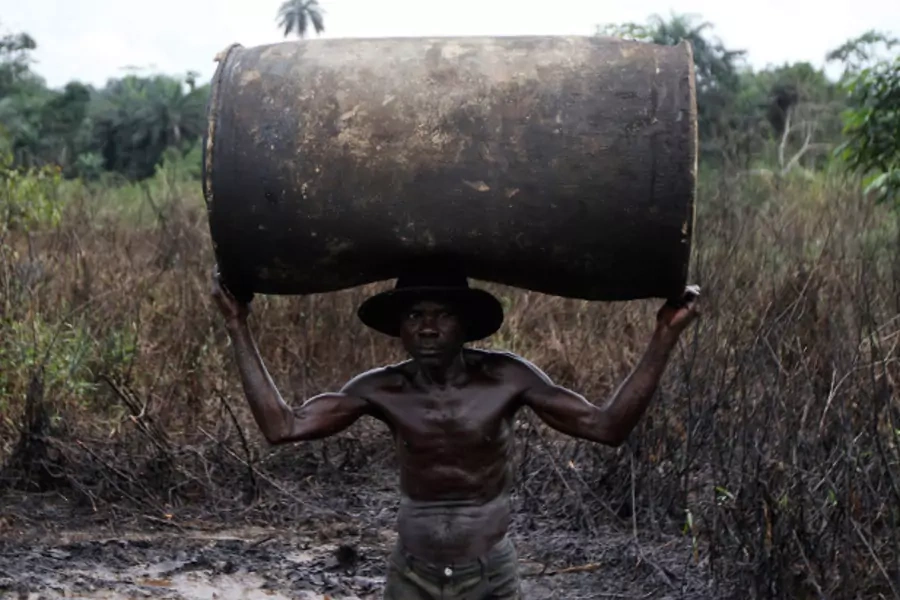More on:
This is a guest post by Emily Mellgard, research associate for the Council on Foreign Relations Africa Studies program.
A great discovery often brings together strange bedfellows. Such is the case when the Jubilee Oil Field is discovered within Ghana’s national waters in the Gulf of Guinea. The heights and depths of the relationships between the people and groups pulled together around this oil field is the subject of the new Rachel Boyton (director) and Brad Pitt (producer) documentary Big Men. The documentary was filmed over five years from first discovery of the oil field to nearing “first oil” -when actual production begins.
The cast includes the original owner of the oil exploration license, George Owusu, a Ghanaian; the leadership of Dallas-based Kosmos Energy, which buys out and hires Owusu; the Blackstone Group, which funds the exploration and initial production phases of the project; two administrations of the Ghanaian presidency; and “The Deadly Underdogs,” a Niger Delta oil bunkering group in Nigeria, which is primarily portrayed as a cautionary tale of everything that could go wrong should Ghana’s new “national resource” be misused.
The documentary continually juxtaposes the conflicting motivations, goals, and intentions for the oil and its revenue between the different “big men.” Ghanaian presidents John Kufuor and his opposition successor John Atta Mills are interested in having the oil reserves extracted, but only -and this is particularly apparent in Mills’ rhetoric- on Ghana’s terms. The investors are looking to see a return on their investment, and the Ghanaians are adamant about benefitting more from these newly discovered oil reserves than they feel they have from over one hundred years of gold mining and export in Ghana. No single perspective is elevated above the others by the filmmakers, instead, each is given equal space to state their case. The effect is to provide a glimpse into the hugely complex sector of oil (and other extractive resources) production, and into corporate/government relations.
Possibly the most interesting contrast in the documentary is that between the fortunes of Ghana and Nigeria. The filmmakers made multiple trips to the Niger Delta throughout the nearly five year process of filming. They record specifically the changing fortunes of one militant group in the Delta creeks that is destroying pipelines and bunkering (stealing) the oil. In interviews with the militant group “the Deadly Underdogs,” and with other individuals engaged in bunkering, the consensus is that Nigeria’s oil belongs, not only to Nigerians, but specifically to the communities in which the oil is found. Yet the benefits of oil extraction are not felt in the communities, nor is a path open to them to oppose their perceived marginalization. This disaffection is where the bunkering rises from.
One militant with the “Deadly Underdogs” stated that “we are in the creeks so that our children can have something better.” Two other interviewees, who admitted to being engaged in sabotage of the pipelines in a bid to be hired as a repairman for those same pipelines had diverging sentiments on their actions. One felt that Nigerians were shooting themselves in the foot by attacking their resources, but could find no alternative action available to gain access to them. His companion however said -and I’m paraphrasing- “I don’t feel that this is wrong. If someone pays me to shoot myself in the foot, I will do it. If I survive I will have the money.” It’s a stark image of desperation and destitution amongst riches.
I would highly recommend the documentary. It is showing in the West Village in New York City and opened this week in Washington DC and Los Angeles. It is a revealing window into the complex world of oil exploitation and production, the dreams such resources conjure, and (in some cases) the utter destruction of those dreams.
More on:
 Online Store
Online Store
